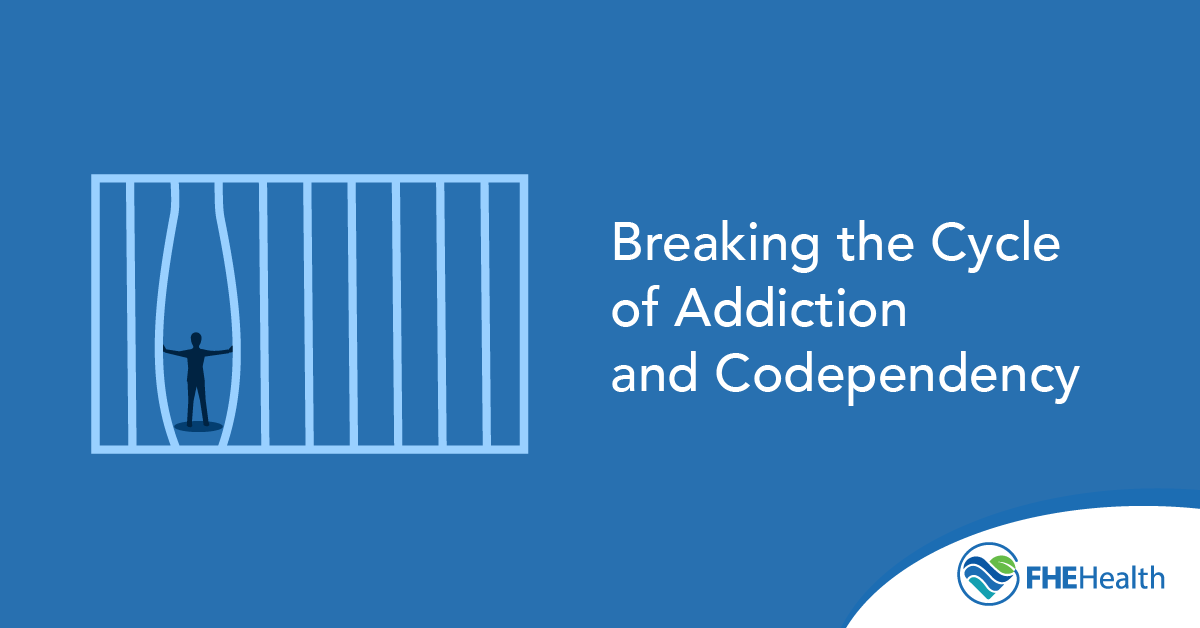
Over 20 million people in the United States struggle with substance abuse. Addiction and relationships are often interlinked, resulting in volatile personal lives. Loved ones close to addicts typically find themselves in a codependent role. While some loved ones think they’re supporting the individual, these types of relationships can push them even further down their path of destruction.
What Is Codependency?
Codependency involves an unhealthy attachment to another person, often as an attempt to fill a void in their life. The codependent person might strongly identify with the “caretaker” role and resort to enabling and people pleasing. The thought of the other person leaving might make them feel panicky or even suicidal. Codependency often plays a role in addiction, as the codependent person enables the substance user.
What Is a Codependent Relationship?
Codependency can happen within many different kinds of relationships. Within the parent-child dynamic, a parent might overly indulge their child when they reach adulthood, paying all their bills and trying to satisfy every emotional need. If their child is addicted to substances, the parent might look the other way and keep giving them money, knowing that they’re feeding the addiction.
In a romantic relationship, one individual may desperately seek the other’s approval, insist on spending all their time together or avoid arguments at all costs. They might feel like martyrs who sacrificed everything for their partner. When addiction plays a role, they could enable their partner’s substance abuse or even use drugs together.
Codependency, Addiction and Enabling
Enabling someone’s addiction might include giving them money for drugs, paying all their bills, giving them a place to stay while they use substances, bailing them out of jail, making excuses or refusing to recommend professional help. The enabler tells themselves they’re helping the individual, but they’re actually making their addiction worse.
How to Tell If You’re Codependent
One of the biggest signs of codependency is an intense attachment to the other person. You might feel like you can’t live without them and obsessively fret about the day they leave. Sometimes this involves canceling plans and dropping outside friendships to spend all your time with this person. You may avoid conflict to get them to stay even when they’re causing you distress.
In extreme situations, you may lose your sense of identity and become attached to the “martyr” or “caretaker” role. You could feel guilty when you do something for yourself and eventually develop feelings of resentment. Often, you feel responsible for this person’s behavior as if they can’t make their own decisions.
Codependency could also manifest in smaller ways, such as only feeling happy when the other person is happy or needing their approval before you can celebrate an accomplishment. Some codependent relationships are mutual, so ask yourself if you notice any of these symptoms in your partner.
How to Know If You Are Enabling Someone
Think you might be enabling someone? Here are some clear signs that you’re an enabler and the behavior needs to stop:
- Providing money to someone even though you don’t know how it’s being spent
- Not voicing your opinion or concerns, even though you may be unhappy with the other person’s actions
- Placing too much focus on that one person to the point of being uncertain of your own sense of identity
- Recognizing unhealthy behaviors in your partner but staying with them anyway
- Offering them a place to live while they blatantly disregard your needs
These are all signs of a codependent relationship and reliance on another. Enablers should look at their own sense of identity and prioritize their own well-being to move beyond these issues.
Are You in a Codependent Relationship?
There are way more people in codependent relationships than will ever admit to being in one. You may hear someone say, “But I love them.” This feeling is understandable, particularly with regard to family members, but you’ll need to break the cycle to make progress.
Here are some things you can do if you have codependency and addiction in your life:
- Don’t give money or a place to live to an individual with an addiction, no matter what they say it’s for. Drugs are their top priority. The chances are high that they’ll leverage the money for their next fix, even if they must steal from loved ones.
- Learn as much as you can about addiction. Talk to professionals and get their opinion on how to approach the situation.
- Create some distance. As difficult as this may be, cutting ties with someone in addiction, even just temporarily, may make them realize how serious their behavior is and convince them to fix things.
- Engage in tough love, and don’t let them justify their behaviors. If an individual with an addiction approaches you with a topic they want reassurance on, especially if it has to do with their drug use, don’t back them up. As hard as it may be, tell them they’re wrong and that using is never justifiable.
- Try to get them help. Participate in family therapy sessions, learn about codependency and work to change your own behavior.
Codependency can be corrected with additional levels of awareness, education and guidance.
Talk About Addiction and Relationships
In codependency recovery, you’ll learn about overcoming toxic patterns and building healthy relationships without drug use. FHE Health offers a variety of programs for people who want to better their lives. Contact us today to discuss your options.






